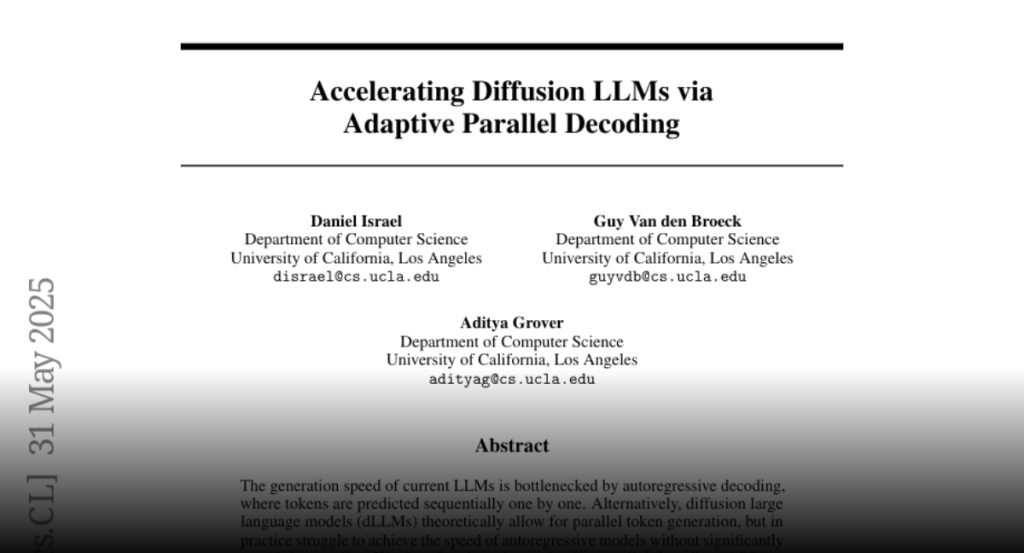Adaptive parallel decoding (APD) enhances the throughput of diffusion large language models (dLLMs) by dynamically adjusting parallel token generation without significantly diminishing quality.
The generation speed of LLMs are bottlenecked by autoregressive decoding,
where tokens are predicted sequentially one by one. Alternatively, diffusion
large language models (dLLMs) theoretically allow for parallel token
generation, but in practice struggle to achieve the speed of autoregressive
models without significantly sacrificing quality. We therefore introduce
adaptive parallel decoding (APD), a novel method that dynamically adjusts the
number of tokens sampled in parallel. We achieve this by defining a
multiplicative mixture between the dLLM marginal probabilities and the joint
probability of sequences under a small auxiliary autoregressive model. This
inverts the standard setup of speculative decoding, where the goal is to sample
from a large autoregressive verifier by drafting from a smaller model. We
further optimize APD by enabling KV caching and limiting the size of the masked
input. Altogether, our method puts forward three tunable parameters to flexibly
tradeoff throughput and quality. We show that APD provides markedly higher
throughput with minimal quality degradations on downstream benchmarks.

